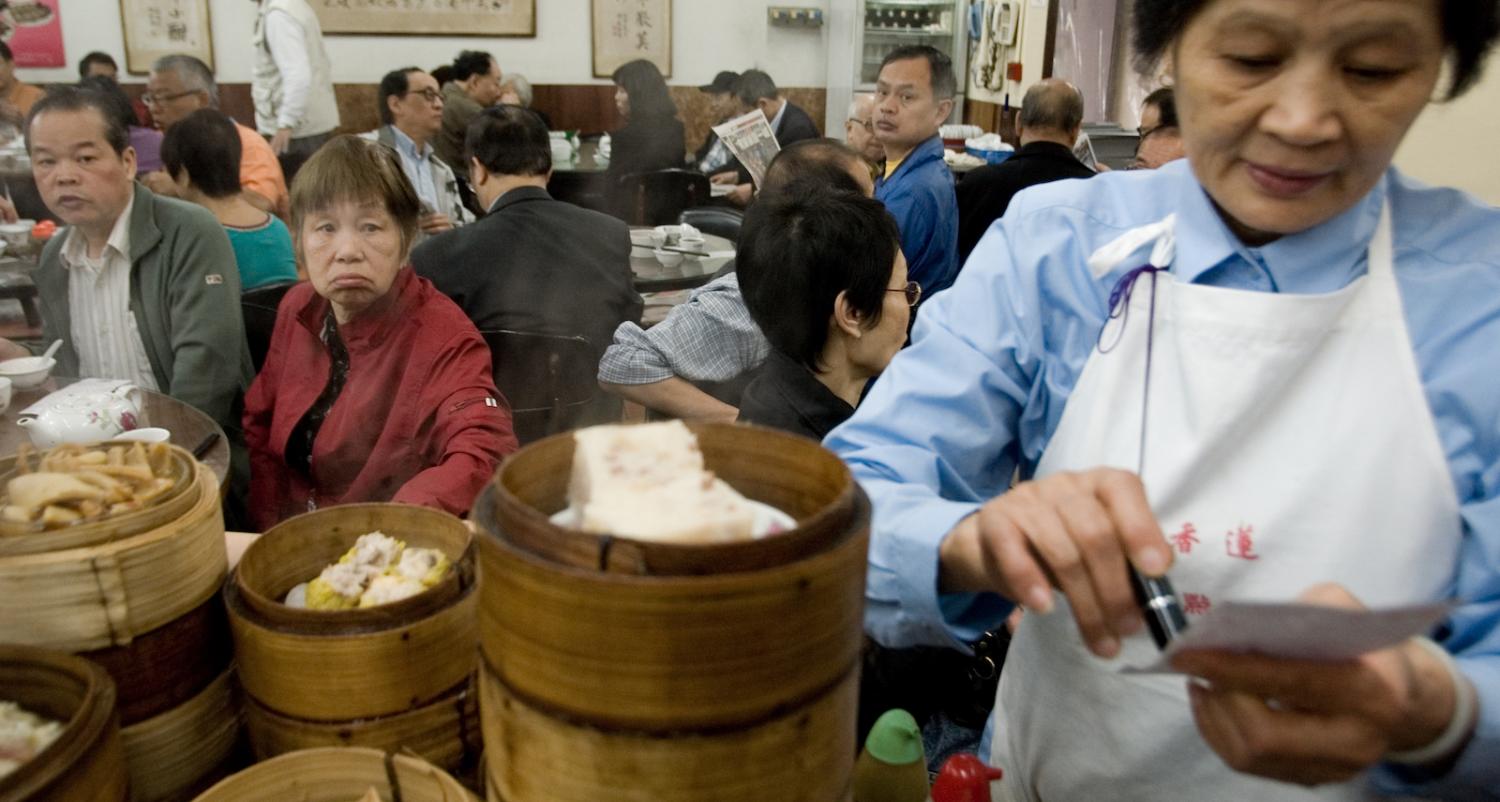Kung Hei Fat Choi is the auspicious Cantonese phrase most commonly heard in Hong Kong this week during the Lunar New Year. Kung Hei stands for congratulations, while Fat Choi literally means making a lot of money. The phrase was said to be originated in the Guangdong region during the Self-Strengthening Movement (1861–1895) in the late Qing period, where Chinese workers wishing their foreign bosses prosperity during the New Year so that they could get a bigger share of profits in the coming year.
But as I grew older, I began to find this saying problematic. You do not hear people say “may Christmas brings you a fortune”. You only say “happy” or “merry” for Christmas.
The way Chinese people (or Cantonese people, specifically) word it sounds as if money equals happiness – and that anything in the way of a bigger fortune must be got rid of.
This is especially true in Hong Kong. As we enter the Year of the Pig, we learn about the possible closure of the century-old Lin Heung Tea House, as the landlord has reportedly refused to renew the lease. The fate of the site remains uncertain but with its location in Central, one of Hong Kong’s priciest spots, redeveloping the 47-year-old building where the tea house is currently located into a new commercial high rising will ensure the landlord to “Fat Choi” in the years to come.
With one-fifth of the population considered to be extremely poor, yearning for the preservation of heritage in exchange of monetary benefits is common only among the minority.
Stories about the long-serving staff of this world-famous tea house gathered together for what could be their last Lunar New Year’s Eve dinner have broken the hearts of many. It is not only the dim sum dishes or drinking tea from the traditional Chinese tea pitcher (a larger teacup that comes with a lid) that people are mourning. It is the sad reality of how helpless we still are in front of the enormous money-making machine.
Blocking people’s pathway to fortune is considered sinful in Hong Kong. It is not a crime written in the law, but the idea is widely understood in society. It is said that such an act is comparable to killing one’s parents. Everything that is in the way to fortune and prosperity must be removed. History, culture, heritage, etc, anything that fails to generate a profit is seen as useless.
Taiwanese author and Taiwan’s former culture minister Lung Ying-tai described such a mentality “Central district values” in a controversial essay she wrote in 2004, after spending a year living in Hong Kong as a visiting scholar. The Central district is the business centre of Hong Kong (and also where Lin Heung Tea House is located). It is crowded with some of the most glamorous commercial towers housing bank headquarters and the stock exchange as well as flagship stores of international fashion houses. Office rents in Central were ranked by CBRE the world’s most expensive in June 2018. It is the place for the rich and those who aspire to become rich, a symbol of wealth and capitalism at its best.
Lung argues that the Central district represents Hong Kong, and the Central district values “monopolised and represented the values of Hong Kong”, that accumulating individual wealth, efficiency and development are driving forces of society’s progress.
Nearly 15 years on from Lung’s essay, Hong Kong has changed a great deal. The on-going political and cultural tensions between the city and mainland have awakened some Hongkongers’ desire to preserve and maintain the city’s unique cultural and historical roots as well as identity. And such a desire has been successfully translated into certain government policies. Some historical buildings have escaped from brutal demolition as a result, including the Central Police Station compound, which was set to be demolished when Lung was writing her essay, is now preserved and converted into a popular arts and heritage centre named Tai Kwun.
There is also a government-initiated effort in conserving the city’s intangible cultural heritage. From Fire Dragon Dance to Hakka folk songs, historic rituals, music, and craftsmanship that make Hong Kong culture unique and colourful are inscribed into a list which the government pledges to keep alive. More importantly, it silences those who accuse Hong Kong of being a cultural desert.
Measures to conserve the city’s heritage and cultural roots have slowly steered Hong Kong away from the Central district values. They have further raised people’s awareness of the value of culture and heritage. There are certain things money cannot buy, and development (or redevelopment) is not necessarily the best indicator of social progress.
But such improved cultural awareness has yet to become powerful ammunition to fight against the domination of the real estate industry. With one-fifth of the population considered to be extremely poor, yearning for the preservation of heritage in exchange of monetary benefits is common only among the minority.
In one of the world’s most highly populated cities where land is the most scarce resource, old shops and places representing part of Hong Kong’s memories such as Lin Heung Tea House will continue to disappear. Perhaps this will change when most people realise that making a lot of money is not something particularly worth celebrating. And this could only happen when there is a consensus to have another auspicious phrase to replace Kung Hei Fat Choi.

